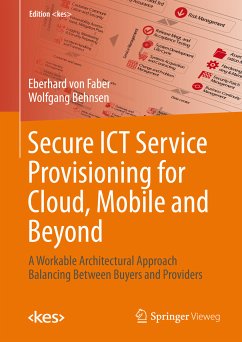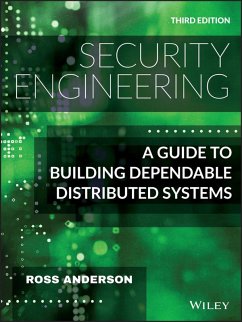
Security Compliance in Model-driven Development of Software Systems in Presence of Long-Term Evolution and Variants (eBook, PDF)
Versandkostenfrei!
Sofort per Download lieferbar
Statt: 96,29 €**
72,95 €
inkl. MwSt.
**Preis der gedruckten Ausgabe (Broschiertes Buch)
Alle Infos zum eBook verschenkenWeitere Ausgaben:

PAYBACK Punkte
36 °P sammeln!
For ensuring a software system's security, it is vital to keep up with changing security precautions, attacks, and mitigations. Although model-based development enables addressing security already at design-time, design models are often inconsistent with the implementation or among themselves. An additional burden are variants of software systems. To ensure security in this context, we present an approach based on continuous automated change propagation, allowing security experts to specify security requirements on the most suitable system representation. We automatically check all system repr...
For ensuring a software system's security, it is vital to keep up with changing security precautions, attacks, and mitigations. Although model-based development enables addressing security already at design-time, design models are often inconsistent with the implementation or among themselves. An additional burden are variants of software systems. To ensure security in this context, we present an approach based on continuous automated change propagation, allowing security experts to specify security requirements on the most suitable system representation. We automatically check all system representations against these requirements and provide security-preserving refactorings for preserving security compliance. For both, we show the application to variant-rich software systems. To support legacy systems, we allow to reverse-engineer variability-aware UML models and semi-automatically map existing design models to the implementation. Besides evaluations of the individual contributions, we demonstrate the approach in two open-source case studies, the iTrust electronics health records system and the Eclipse Secure Storage.
Dieser Download kann aus rechtlichen Gründen nur mit Rechnungsadresse in A, B, BG, CY, CZ, D, DK, EW, E, FIN, F, GR, HR, H, IRL, I, LT, L, LR, M, NL, PL, P, R, S, SLO, SK ausgeliefert werden.












